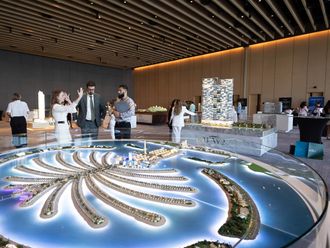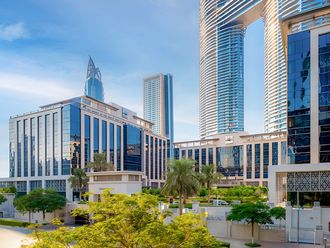Dubai: The rapid emergence of holiday homes — with transactions made over an app — in Dubai will start to have consequences for hotel properties at both end of the pricing spectrum, according to a new update from Knight Frank.
More so, as these holiday homes are starting to rope in specialised operators to manage them. These properties were then able to generate occupancy levels of between 70 and 80 per cent. “This suggests that such entities can still drive value despite the fact that they are no longer required to be instructed by law,” the consultancy states.
As such, the median occupancy for holiday homes in Dubai was at 46 per cent in 2015. The average premium in holiday homes’ ADR (average daily rate) over a hotel ADR during the first six months of this year was around 29 per cent. The average ADR for a holiday home is estimated at Dh948 in the first-half.
“Holiday homes dilute the ability of hotels to yield during periods of peak demand,” the report states. “Whereas hotel room supply is fixed and the incremental cost of developing supply is very high, the holiday home market can scale appropriately to demand with negligible marginal costs for additional supply.
“For this reason they restrict the ability of hotels to price aggressively during periods of peak demand and have the highest impact in markets that are heavily seasonal.”
On Airbnb, the global leader in the short-term stay business, there are 4,200 “active listings” of units in Dubai. Of these, 24 per cent are private rooms, 6 per cent represent shared rooms and the rest are entire homes. (“Shared hosting” is technically not permissible under current Dubai legislation.)
Strong levels
Not surprisingly, one-bed apartments take up the bulk of the current supply, at 44 per cent. “Primary interviews with operators indicate that such units see strong levels of demand as they are the most versatile, on the basis that they are able to accommodate between one and four individuals, if a sofa bed is provided,” the report says.
“Two and three-bedroom units are relatively difficult to lease, not only because they are more expensive, but also because demand for these types of unit is highly seasonal, peaking during public holidays.”
It was in April last that DTCM (Dubai Tourism & Commerce Marketing) allowed individual home owners to apply for holiday home licences without having to commission a third-party. “The process became relatively straightforward, involving little more than an online application with annual registration fees of Dh1,520 plus an additional Dh320 per unit.
“The simplicity of the process has led to a rapid increase in supply of short-term rentals over the past few months, as an increasing number of homeowners test the market.” (The earlier legislation required homeowners to have a licensed third-party holiday home operator as a management company in exchange for a fee, which typically ranged from 20 to 25 per cent of gross revenues.”












